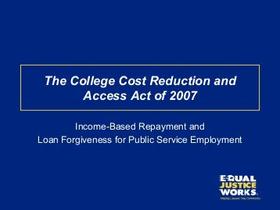- At Salem Community College we believe in the value of education. Our commitment is to meet the ever-changing needs of a diverse community by providing high-quality and affordable education in a dynamic learning environment.
School Highlights
Salem Community College serves 2,080 students (37% of students are full-time).
The college's student-teacher ratio of 20:1 is higher than the state community college average of 19:1.
Minority enrollment is 54% of the student body (majority Black), which is less than the state average of 65%.
Quick Facts (2025-26)
- Enrollment: 2,080 students
- In-state tuition: $4,794
- Out-state tuition: $4,794
- Student-teacher ratio: 20:1
- Minority enrollment: 54%
- Source: Integrated Postsecondary Education Data System (IPEDS)
Top Rankings
Salem Community College ranks among the top 20% of public schools in New Jersey for:
Category
Attribute
Affordability
School Overview
The teacher population of 105 teachers has stayed relatively flat over five years.
Salem Community College
(NJ) Community College Avg.
Carnegie Classification
Associate's Colleges: High Career & Technical-High Nontraditional
Baccalaureate Colleges: Diverse Fields
Institution Level
At least 2 but less than 4 years
At least 2 but less than 4 years
Institution Control
Public
Private not-for-profit
Total Faculty
105 staff
445 staff
School Calendar
Student Body
The student population of Salem Community College has grown by 108% over five years.
The student-teacher ratio of 20:1 has increased from 8:1 over five years.
The Salem Community College diversity score of 0.70 is less than the state average of 0.77. The school's diversity has stayed relatively flat over five years.
Total Enrollment
2,080 students
2,085 students
Student-Teacher Ratio
20:1
19:1
# Full-Time Students
766 students
766 students
# Part-Time Students
1,314 students
1,319 students
# Enrollment Undergraduate
208 students
334 students
# Full-Time Undergraduate Students
766 students
766 students
# Full-Time Graduate Students
n/a
50 students
# Part-Time Undergraduate Students
1,314 students
1,213 students
# Part-Time Graduate Students
n/a
6 students
Total Dormitory Capacity
n/a
20 students
% American Indian/Alaskan
n/a
n/a
% Asian
2%
8%
% Hispanic
12%
26%
% Black
22%
15%
% White
46%
35%
% Hawaiian
n/a
1%
% Two or more races
3%
3%
% Non Resident races
n/a
2%
% Unknown races
14%
10%
Diversity Score
0.70
0.77
College Completion Rate (Students who graduate in less than 4 years)
40%
40%
College Completion Rate (Students who graduate in 4 years or more than 4 years)
n/a
44%
Average Graduate Earnings (10 Years)
$29,800
$36,100
Tuition and Acceptance Rate
The public in-state tuition of $4,794 is less than the state average of $5,470. The in-state tuition has declined by 24% over four years.
The public out-state tuition of $4,794 is less than the state average of $7,575. The out-state tuition has declined by 45% over four years.
In-State Tuition Fees
$4,794
$5,470
Out-State Tuition Fees
$4,794
$7,575
% Students Receiving Some Financial Aid
50%
86%
Median Debt for Graduates
$9,750
$11,000
Median Debt for Dropouts
$6,641
$5,500
Acceptance Rate
n/a
76%
Source: 2024 (or latest year available) Integrated Postsecondary Education Data System (IPEDS) , School Administrators
School Notes
- Salem Community College traces its origins to the opening of Salem County Technical Institute in 1958. The institute quickly established a reputation for excellence in postsecondary career education, particularly in the technical and health fields. Recognizing the college-level caliber of the institute's programs, the Salem County Board of Chosen Freeholders requested approval to grant degree-awarding authority to the institute. The New Jersey Board of Higher Education evaluated the institute's programs and granted the requested approval. On September 3, 1972, Salem Community College was established by the Board of Chosen Freeholders. Salem Community College is a two-year, public, comprehensive institution of higher education authorized to grant associate degrees (A.A., A.S. and A.A.S.) and certificates in over 40 liberal arts, business, practical nursing and technology programs of study. SCC places strong emphasis on educational outreach and an open admissions policy. SCC is committed to providing quality instruction, academic support and student services that meet students' educational goals. SCC has 11-acre campus in Carneys Point, NJ. SCC enjoys the advantages of being in a small suburban community while being near Wilmington Delaware, Philadelphia and other metropolitan areas. The Carneys Point Campus features the Glass Center, home of the nationally renowned programs in scientific glass technology and glass art. The Salem Center offers many of the same services available at the Carneys Point campus, including credit-course registration and placement testing. Salem Community College is fully accredited by the Middle States Commission on Higher Education. In addition, the College and its programs are approved by the New Jersey Commission on Higher Education.
Frequently Asked Questions
How much does Salem Community College cost?
Salem Community College's tuition is approximately $4,794 for In-State students and $4,794 for Out-State students.
What is Salem Community College's ranking?
Salem Community College ranks among the top 20% of community college in New Jersey for: Least expensive tuition.
Recent Articles

Community College Success Rates 2025: Outcomes & Trends
Updated 2025 analysis of community college success rates, completion, transfer, costs, enrollment, and strategies that shape student outcomes.

Community Colleges in 2025: Combating Stereotypes with Impact
Updated insights on how community colleges are dispelling myths, growing enrollment, and expanding pathways in 2025.

2025 FAFSA Changes Explained for Community College Students
A comprehensive guide to 2025 FAFSA changes, what community college students must know, new eligibility rules, timelines, and tips to maximize federal aid.











